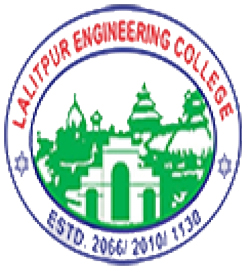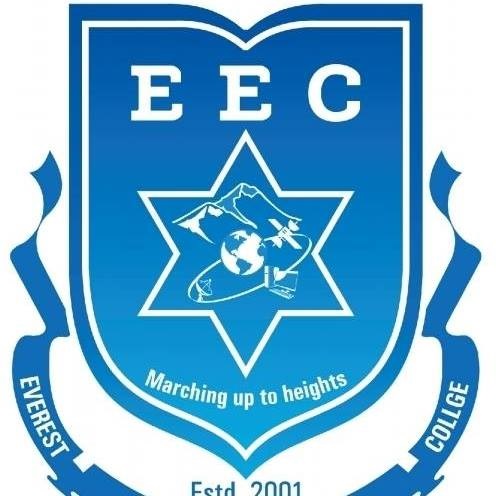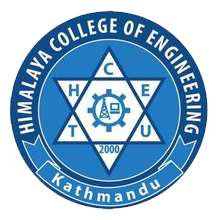Overview
B.E. Civil Engineering at Kantipur Engineering College, Dhapakhel, Lalitpur
B.E. Civil Engineering at Kantipur Engineering College (KEC), Dhapakhel, Lalitpur, offers a Tribhuvan University–affiliated pathway for students who want grounded learning in structures, water, transportation, geotechnics, and construction practice.
The course follows the Institute of Engineering (IOE) framework used across TU-affiliated campuses in Nepal. Students learn in classrooms, laboratories, and field sites within the Kathmandu Valley, which helps you connect theory with real projects. Admission takes place through the IOE computer-based entrance system.
-Building.jpg)
Highlights
-
Affiliation: Tribhuvan University, Institute of Engineering (IOE).
-
Location: Dhapakhel, Lalitpur (inside Kathmandu Valley; access to project sites and agencies).
-
Recognition: Nepal Engineering Council granted KEC Permanent Status on 16 May 2025.
-
Academic support: Research, Training & Consultancy Division (RTCD), annual KEC Conference, and InJET publication on NepJOL.
-
Scholarships: Defined categories under KEC’s Scholarship & Excellence Award Policy.
Overview with Introduction
Civil engineering at KEC draws on Nepal’s terrain and urban growth needs. You study structural behavior in reinforced concrete and steel, measure land using surveying instruments, examine soil properties for foundation work, and plan water systems for communities. The Valley setting gives steady access to consultancies, government departments, and construction corridors, which supports site visits and guest interactions during the semesters.
RTCD activities, the KEC Conference series, and the InJET platform give students a channel to present capstone work or literature studies and to observe peer research. This exposure builds writing discipline and presentation habits that matter in your final year and early career.
Curriculum Details
The program follows TU-IOE’s semester structure for B.E. degrees. Students progress from science and mathematical foundations to civil-specific studios and labs. First-year teaching is supported by the Department of Engineering Science & Humanities, which handles Physics, Chemistry, Mathematics, communication, and mechanical basics before you enter core civil courses.
Typical study areas across eight semesters include:
-
Surveying and Geomatics: Linear and angular measurements, leveling, total station and GPS use, mapping, and route setting for road projects.
-
Engineering Drawing and Graphics: Plans, elevations, sections, detailing for civil works; computer-aided drafting in later terms.
-
Mechanics and Materials: Statics, dynamics, strength of materials, concrete technology, construction materials testing.
-
Structural Analysis and Design: Indeterminate analysis, load calculations, RCC and steel member detailing, introduction to earthquake considerations for Nepal.
-
Geotechnical Engineering: Soil classification, permeability, compaction, shear strength, foundation types, bearing capacity, and slope checks.
-
Hydraulics and Hydrology: Open-channel flow, pump systems, rainfall–runoff basics, flood estimation for river training and drainage.
-
Water Supply and Sanitation: Urban/rural supply systems, treatment units, network planning, on-site sanitation options relevant to local contexts.
-
Transportation Engineering: Geometric design, pavement materials, traffic characteristics, and maintenance planning for hill and Terai conditions.
-
Construction Planning and Management: Quantity estimation, specifications, contracts, scheduling, safety, and quality checks on site.
-
Environmental Engineering: Air and water quality concepts for project impact control and compliance.
-
Project Work and Capstone: Problem framing, data collection, modeling/design, report writing, and viva.
Field observations and lab exercises anchor these subjects. Department posts show examples such as geology field tours tied to course outcomes, which illustrate how site exposure is woven into semester plans.
Objectives
-
Help students build sound fundamentals in mechanics, materials, and measurement.
-
Prepare students to plan and check civil works for safety, serviceability, and lifespan in Nepal’s geographic settings.
-
Encourage structured problem solving through labs, drawings, and group projects.
-
Support research habits through RTCD activities, the KEC Conference, and guided writing tasks.
Scope
Civil graduates work across consulting, contracting, and public agencies. Typical entry points include site supervision, drafting/detailing, quantity estimation, assistant design roles, and project coordination.
The program’s TU alignment supports recognition within Nepal’s public service and private sector recruitment. KEC’s Permanent Status from NEC strengthens institutional standing for graduate credential review.
Learning Outcomes
Students who complete the course should be able to:
-
Read and prepare engineering drawings, estimates, and work schedules for small to mid-scale projects.
-
Conduct surveys and basic geotechnical and materials tests, then interpret results for field decisions.
-
Build structural models, apply loads, and present safe member sizing with proper detailing.
-
Prepare water supply layouts and drainage concepts suitable for differing settlements.
-
Draft site management plans that address safety, quality checks, and documentation.
-
Present technical writing in a clear style fit for semester submissions and capstone reports.
Skill Development Modules
KEC pairs classroom study with practical tasks so you can gain hands-on skills gradually.
-
Survey Camp Assignments: Route setting, profile leveling, and topographic mapping in teams using total station or theodolite.
-
Materials and Soil Testing: Cube tests for compressive strength, sieve analysis, Atterberg limits, Proctor compaction, and shear testing with lab notes.
-
Hydraulics Bench Work: Flow measurements, minor losses, pump characteristics, and small channel experiments.
-
Drafting and Modeling: CAD drawings, spreadsheets for estimation, and entry-level use of structural analysis software during project phases.
-
Construction Planning: Bar bending schedules, method statements, and safety checklists aligned to typical local contracts.
-
Capstone Project: Data gathering, stakeholder contact where feasible, and a written report plus viva aligned to TU assessment.
These activities expand through RTCD events and the campus conference cycle, which helps you turn project outcomes into posters or short papers.
Teaching Methodology
Teaching blends lectures, tutorials, and labs. First-year coordination by the Department of Engineering Science & Humanities helps students adjust to collegiate routines and academic writing practices.
Departments then run site visits tied to key courses and schedule internal evaluations before university examinations. Student clubs create peer spaces for coding, modeling, or model-making beyond class hours.
Admission Requirements
Admission into B.E. Civil at KEC follows the IOE entrance system.
-
Eligibility: Grade 11 and 12 (Science) with Physics, Chemistry, and Mathematics, minimum Grade C in each subject under letter grading; or 45% in a relevant diploma/equivalent.
-
Entrance exam: Computer-based objective test conducted by IOE; sections cover Mathematics, Physics, Chemistry, English, and aptitude as per IOE notice.
-
Selection at KEC: Applicants who pass the IOE test apply to KEC; intake is based on IOE merit among those who choose the college. Check current intake timeline and instructions on the official channels each year.
Career Opportunities
Graduates take junior roles in design offices, contractor teams, and public bodies. Common tasks include quantity take-offs, drawing updates, site supervision, and testing coordination. Some graduates pursue postgraduate study in structures, geotechnics, transportation, water resources, or environmental areas after gaining project exposure.
Engagement with the KEC Conference and InJET helps build a writing sample and a presentation record, which is useful while applying for competitive scholarships or graduate school.
Scholarships and Financial Aid
KEC runs a Scholarship and Excellence Award Policy that covers multi-year and semester waivers, local-ward support, and staff-children categories, alongside merit rebates. The policy document clarifies conditions, application procedure, and committee roles.
Students from Lalitpur Metropolitan City Wards 23 and 24 can apply under the local category, subject to proof and policy terms. Excellence Awards recognize semester toppers and course-stream performance, and there are awards linked to projects, ECA, and sports. Refer to the current policy and handbook before applying.
Why Choose This Course?
-
TU–IOE framework: The course follows a widely used academic structure in Nepal’s public and affiliated campuses.
-
Valley-based field access: Dhapakhel location supports frequent exposure to live works and agencies.
-
Active academic ecosystem: RTCD, KEC Conference, and InJET offer platforms for student work.
-
Institutional standing: NEC Permanent Status (May 2025) reflects a key quality milestone for the college.
Conclusion
B.E. Civil Engineering at KEC suits students who prefer applied learning within the TU–IOE system and want steady contact with field tasks. The course builds step by step—from measurements and materials to structural checks, water systems, and project management—so you can grow from classroom habits to site decisions. The campus hosts events that encourage writing and presentation, and the scholarship policy supports eligible learners who meet defined criteria.
FAQ
1) What is the awarding university for B.E. Civil at KEC?
Tribhuvan University through the Institute of Engineering (IOE).
2) How do I apply for admission?
Sit for the IOE computer-based entrance. After qualifying, submit an application to KEC and follow the merit-based intake steps for the program year.
3) What are the minimum eligibility marks?
Grade 11 and 12 with Physics, Chemistry, and Mathematics with Grade C in each subject, or 45% in a relevant diploma/equivalent as per IOE notice.
4) Does KEC provide scholarships for civil students?
Yes. The Scholarship & Excellence Award Policy lists multi-year and semester waivers, a local-ward category for Lalitpur-23/24, staff-children support, and merit rebates under stated rules.
5) Are there research or presentation opportunities for undergraduates?
Yes. RTCD runs events; KEC hosts an annual conference; and InJET on NepJOL publishes selected outputs linked to the conference cycle.
6) What recent institutional quality milestone should I know?
Nepal Engineering Council granted Permanent Status to KEC on 16 May 2025.
7) Where can I verify dates and program-year updates?
Check the IOE admission page for exam notices and KEC’s official site for program updates, scholarship windows, and event calendars.


.png)




















